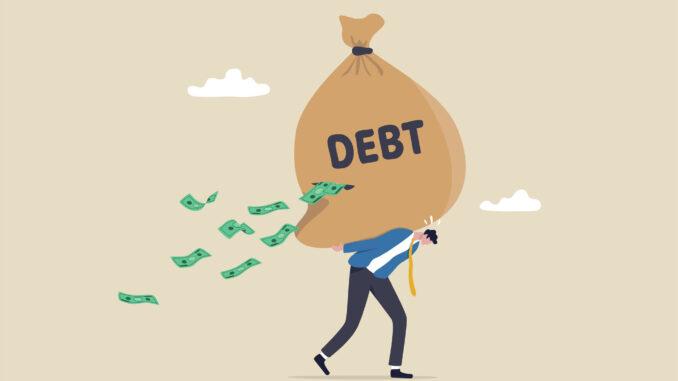
Last Updated on by lizzy
Credit card debt refers to the outstanding balance or amount of money that a person owes to their credit card issuer. It occurs when individuals use their credit cards to make purchases or obtain cash advances and are unable to pay off the full amount owed by the due date. The remaining balance accrues interest, leading to the accumulation of debt over time.

Causes of Credit Card Debt
- Overspending and Impulsive Purchases: – The temptation of easy access to credit – Impulse buying and the influence of consumer culture
- Lack of Financial Literacy and Budgeting Skills: – Insufficient understanding of interest rates and fees – Failure to establish a budget and monitor spending habits
- Unexpected Emergencies and Financial Hardships: – Unforeseen circumstances leading to reliance on credit cards – Inadequate emergency funds to cover necessary expenses
Consequences of Credit Card Debt
- High Interest Rates and Accumulating Debt
- Negative Impact on Credit Score and Financial Future
- Stress, Anxiety, and Mental Health Effects
Tips for Avoiding Credit Card Debt
- Practicing Responsible Credit Card Usage
- Building an Emergency Fund for Unexpected Expenses
- Considering Alternatives to Credit Cards
Professional Help for Credit Card Debt
- Credit Counseling Services
- Debt Consolidation Options
- Bankruptcy as a Last Resort
How to pay off Credit Card debt
Paying off debt can be a challenging process, but with the right strategies and commitment, you can successfully eliminate your debt and regain financial freedom. Here are some effective ways to pay off :
- Assess Your Debt
- Create a Budget
- Prioritize Debt Repayment
- Make Larger Payments
- Consider the Snowball Method where you prioritize paying off the smallest debt first, regardless of the interest rate.
- Cut Expenses and Increase Income
- Negotiate Lower Interest Rates
- Explore Balance Transfer or Consolidation Options
- Seek Professional Advice.
Commonly Asked Questions
What is credit card debt?
It is the amount you owe to your credit card issuer for purchases made using your credit card. It can be categorized as revolving debt, which allows you to carry a balance from month to month, or installment debt, which involves fixed payments over a specified period.
How does credit card interest work?
- Credit card interest is expressed as an annual percentage rate (APR) and represents the cost of borrowing on your credit card.
- It accumulates based on the average daily balance and compounds over time, increasing the amount you owe.
What are the consequences of carrying credit card debt?
- Carrying the debt can have several negative consequences, including a lower credit score, limited borrowing capacity, and increased financial stress.
- Additionally, high interest charges can make it difficult to pay off the debt, leading to a cycle of debt accumulation.
How can I pay off my credit card debt?
- Creating a debt repayment plan is crucial. Start by assessing your financial situation, listing your debts, and identifying a strategy that works best for you.
- Popular strategies include the snowball method (paying off smaller debts first) or the avalanche method (prioritizing debts with the highest interest rates).
Should I consider debt consolidation for credit card debt?
- Debt consolidation involves combining multiple debts into a single loan or card with a lower interest rate.
- Before pursuing debt consolidation, consider factors such as eligibility, fees, and potential risks. Consult with a financial professional to make an informed decision.
What are the alternatives to debt consolidation?
- Balance transfer credit cards offer an alternative solution by allowing you to transfer high-interest credit card balances to a card with a lower or zero interest rate for a limited period.
- Credit counseling or debt management programs can also provide guidance and assistance in managing your debt.
How can I avoid falling into credit card debt in the future?
- Establishing a budget and tracking your expenses can help you gain control over your finances and avoid overspending.
- Practicing responsible credit card usage, paying off balances in full, and setting financial goals can contribute to long-term financial stability.



Leave a Reply